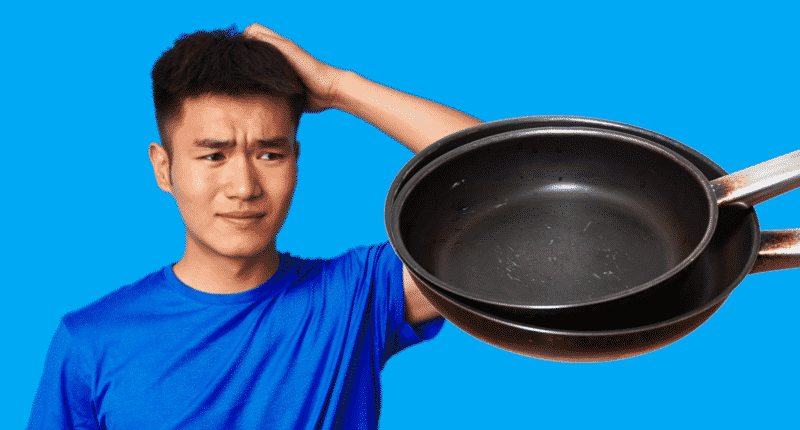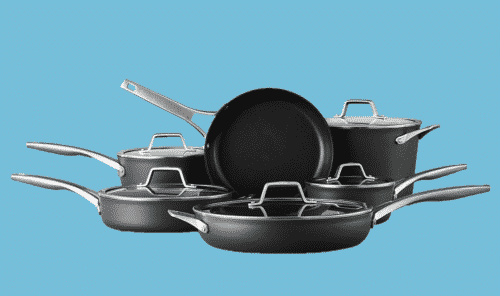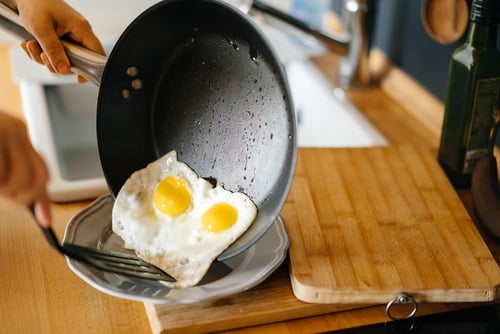
Calphalon is a specific US-based cookware brand that is famous for its unusual non-stick surfaces. Most other non-stick cookware makes use of only a Teflon coating. Calphalon cookware, however, is manufactured from anodized aluminum.
In addition, the manufacturers use a “hard-anodizing” process that renders the cookware’s surface extremely resistant to corrosion or scratching. As a result, calphalon pans are said to be among the most durable pans available.
Calphalon is safe because no chemicals or harmful substances come off the pans into the food. In addition, the hard anodizing process makes the pan extremely smooth by getting rid of the tiny pores in the metal that causes food to stick.
On top of this, the manufacturers add a layer of polytetrafluoroethylene (PTFE) to improve the non-stick properties for easy release of the food and quick cleaning up.
The question of “is it safe to use a scratched Calphalon pan?” arises because people are concerned about this PTFE getting scratched off the pan and mixed into their food. This synthetic polymer has been linked to cancer in lab mice. This raises a problem because no one wants to have a carcinogenic breakfast.
Is It Safe to Use A Scratched Calphalon Pan?

Many people love their Calphalon cookware with its effective non-stick coating as it makes cooking and washing up so much quicker and easier. Calphalon nonstick cookware also saves you from using a lot of oil to prevent your food from sticking to the pan.
However, most people do not want chunks of non-stick carcinogenic coating in their meals. To put things into perspective, a few flakes of PTFE in your food will probably pass straight through your digestive tract without being digested and without causing you any harm at all.
Dosage Is Important

The toxicity problem is completely dose-related. In most studies, the ridiculously high doses of PTFE over long periods of time were carcinogenic.
Caring for Your Cookware
To ensure that your Calphalon cookware lasts for many years and maintains its perfect non-stick surface, you need to care for it correctly. This means never using metal utensils that will scratch the surface. Instead, use only silicone or wooden utensils.
Also, when washing up, never use abrasive cleaning products. Instead, use only liquid dish soaps and warm water. Do not wash the cookware with abrasive sponges or wire cleaners, but rather use a soft cloth.
Soak the pan in hot soapy water for stubborn food residues first, and use a plastic bristled dish cleaning brush. While Calphalon is marketed as dishwasher safe, the cookware’s surface will probably last longer if carefully hand washed.
To conclude
Yes, many of Calphalon’s cookware products do contain PTFE on their surfaces. However, if the pots and pans are looked after correctly, the product is safe and non-toxic with no exposure to harmful chemicals while cooking. If you are still worried, though, Calphalon introduced a new range of ceramic-based cookware with enamel surfaces.